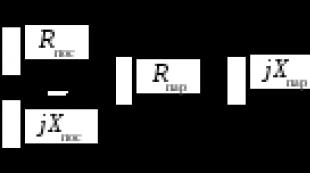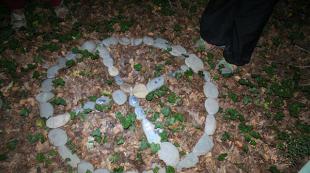Nat king cole musical compositions. Nat King Cole: with love for music
Nat King Cole is the first black artist to break through the racial barriers of the music industry of his day. Because of his skin color, he had to endure many hardships, including long-term persecution by the Ku Klux Klan. However, it was thanks to him that black artists were able to take their rightful place in big show business. Since 1956, Nat has hosted a popular television show in his name for a year, and he became the first African American to achieve this goal.

Cole's penetrating signature baritone is easily recognizable, his style of performance standing out from dozens of other singers. The image of a naive, kind, lyrical singer he created was not only romantic, but also absolutely natural. The sensual velvet of the voice, as well as the perfect diction and phrasing, are still the envy and role model of many artists. He was well aware of the charm emanating from him and the degree of influence on others, and used them to help other people.
Nathaniel Adams Coles, who became known as Nat King Cole, was born in Alabama in 1919 to a religious Baptist family. His father was a priest, his mother was the leader of the church choir. It was she who gave the boy his first music lessons, teaching him to play the organ. Nathaniel's first performance with the song "Yes, We Have No Bananas" took place when he was only 4 years old. This was followed by a move to Chicago, where Nat began to study music seriously at the age of 12, taking piano lessons. The style of the young performer was formed under the influence of Earl Hines and spiritual Negro melodies (gospel, spiritual), which he sang with his father in church. Subsequently, the musician recalled that their Chicago apartment was literally littered with Hines records.
Since the age of 19, Nat King has been a professional pianist in the sextet of his older brother Eddie. In 1936 he performed the Noble Sissle revue, and a year later organized his own trio with Oscar Moore and Wesley Prince. Young people perform a lot in clubs and cafes, their union continues until 1947. Later, Cole participates in numerous tours and concerts with the "Jazz Philharmonic" Norman Granz. He performs with Lester Young, Benny Carter, Lionel Hampton and other jazz music stars.
 As a vocalist, Nat became famous since 1943, after he recorded his own composition "Straighten Up and Fly Right" based on Negro material. He once heard the folklore basis for it from his father. Record label Capitol Records sold over 500,000 copies of this song. Since the late 1940s, Nat King has been recording more and more popular tunes, often accompanied by an orchestra of string instruments. The song "Mona Lisa", recorded in the summer of 1950, sells three million copies and tops the charts. Cole is especially fond of the Christmas theme, he is happy to write songs and music for new year holidays. Today, his version of "Merry Christmas to You" is the most performed in Western Christendom. Especially for those critics who regretted that the performer had completely strayed from his jazz roots, Nat King released the exclusively jazz album After Midnight in 1956. Experts in the field of jazz music believe that the contribution of the performer to the development of this musical direction is underestimated. It was his trio that was the first, while the team of Oscar Peterson are only followers.
As a vocalist, Nat became famous since 1943, after he recorded his own composition "Straighten Up and Fly Right" based on Negro material. He once heard the folklore basis for it from his father. Record label Capitol Records sold over 500,000 copies of this song. Since the late 1940s, Nat King has been recording more and more popular tunes, often accompanied by an orchestra of string instruments. The song "Mona Lisa", recorded in the summer of 1950, sells three million copies and tops the charts. Cole is especially fond of the Christmas theme, he is happy to write songs and music for new year holidays. Today, his version of "Merry Christmas to You" is the most performed in Western Christendom. Especially for those critics who regretted that the performer had completely strayed from his jazz roots, Nat King released the exclusively jazz album After Midnight in 1956. Experts in the field of jazz music believe that the contribution of the performer to the development of this musical direction is underestimated. It was his trio that was the first, while the team of Oscar Peterson are only followers.
Discography of Nat King Cole:
- The King Cole Trio (1945)
- The King Cole Trio, Volume 2 (1946)
- The King Cole Trio, Volume 3 (1947)
- The King Cole Trio, Volume 4 (1949)
- Nat King Cole at the Piano (1950)
- King Cole for Kids (1951)
- Penthouse Serenade (1952)
- Top Pops (1952)
- Harvest of Hits (1952)
- Unforgettable (1954)
- Penthouse Serenade (1955)
- Nat King Cole Sings for Two in Love (1955)
- The Piano Style of Nat King Cole (1955)
- After Midnight (1957)
- Just One of Those Things (1957)
- Love Is the Thing (1957)
- Cole Español (1958)
- St. Louis Blues (1958)
- The Very Thought of You (1958)
- To Whom It May Concern (1958)
- Welcome to the Club (1958)
- A Mis Amigos (1959)
- Tell Me All About Yourself (1960)
- Every Time I Feel the Spirit (1960)
- Wild Is Love (1960)
- The Magic of Christmas (1960)
- The Nat King Cole Story (1961)
- The Touch of Your Lips (1961)
- Nat King Cole Sings/George Shearing Plays (1962)
- Ramblin' Rose (1962)
- Dear Lonely Hearts (1962)
- More Cole Español (1962)
- Those Lazy-Hazy-Crazy Days of Summer (1963)
- Where Did Everyone Go? (1963)
- Nat King Cole Sings My Fair Lady (1964)
- Let's Face the Music! (1964, recorded 1961)
- I Don't Want to Be Hurt Anymore (1964)
- L-O-V-E (1965)
Nat King Cole (03/17/17 - 02/15/65)
Freddy Cole:
"When you start listening to him, his voice immediately puts you at ease. This is one of his most important qualities."
It is not for nothing that this legendary black performer received the title of "King": modern blues, rhythm and blues, soul, funk and pop ballad were first developed in the work of Nat Cole. A virtuoso pianist - at the age of 12 he already played Bach and Rachmaninov - Nat "King" Cole organized a jazz trio in 1934 (his brother Eddie was the bass player), which, changing members, lasted until the early 60s. Cole's trio was played by such outstanding musicians as Buddy Rich, Max Roach, Lester Young, Benny Carter, Willie Smith, Bill Coleman, and many others, who made the honor and glory of modern music. and Duke Ellington - a clear evidence of the significance of the contribution of this artist to world culture.
Nat King Cole has long been the favorite singer and pianist of countless pop music lovers, connoisseurs and jazz lovers. The listeners invariably liked his special penetrating manner of performance, as if he sang with his charming baritone personally for you and knew how to tell a love story as if it had never happened anywhere and with no one - only with you. He created a lyrical image that was extremely natural and at the same time romantic. Of all the English-speaking vocalists, he stood out with unsurpassed diction and phrasing, and one can safely learn English from his songs.
Biography:
Nathaniel Adams Cole was born on March 17 in Montgomery, Alabama and soon ended up in Chicago, where his family moved. His father, the Reverend Edward J. Coles, was a Baptist minister in whose choir his mother Perlina also sang. Nat had an older brother, Eddie, and a sister, Evelyn, and younger brothers, Isaac and Fred, were born in Chicago. They all sang and played the piano and had voices very similar in timbre. There was a happy atmosphere in the family, there were never quarrels and everyone loved each other, especially Nat. His early idol was pianist Earl Hines, whose records defined and shaped Nat's musical taste, while his father, with whom he often sang Negro spiritual chants (spiritual and gospel), had a spiritual impact.
Nat began playing the piano at the age of four, and gathered his first orchestra from a dozen classmates. Having worked professionally as a pianist in Eddie's sextet since the age of 19, Nat shortened his last name (becoming just Cole without the "s"). In 1936, Nat went on tour with Noble Sissle's revue, which fell apart a year later, leaving him stranded in Los Angeles. There, Nat married dancer Nadine Robinson from the show and began playing local clubs for $5 a night. At this time, he tried to create his own quartet, but the drummer did not come to the first performance, so a trio remained - double bass, guitar and piano. It was 1937, the era of the big bands, and the managers doubted that such a small line-up would be of much interest to the audience, but Nat's trio proved attractive enough for the audience nonetheless. Legend has it that Cole sang by accident. Allegedly some tipsy visitor in one of the clubs where Nat played asked him to sing the song "Sweet Lorraine". The musician refused and then the owner of the establishment intervened: “You know this song, sing it so that he falls behind.” Of course, Cole knew and loved this theme by clarinetist Jimmy Noon, and he sang it. His singing made such an impression that the musician received the nickname "King" and since 1940, when this happened, the "Nat King Cole Trio" quickly went uphill. In 1948, Nat's trio signed with the newly formed composer Johnny Mercer, Capitol Records, where they almost immediately recorded their first great hit, "Straighten Up And Flay Right," written by Nat himself. As a soloist and pianist, he became increasingly successful. As a pianist, Cole was very highly regarded among jazz musicians and later, while working in New York, he participated in recordings with such famous masters as Lester Young, Lionel Hampton and Bady Rich.
While in New York, Nat met his future second wife Mary Hawkins, originally from Boston, whose stage name was Ellington, as she then sang in Duke's orchestra.
In the 50s, Nat became one of the most popular artists in the world. That was the time of his greatest success: crowds of fans, full houses everywhere, tours in Australia and South America, where he sang in Spanish and performed in huge stadiums. For 15 years, he recorded more than 60 long-playing records and starred in a dozen films. Back in the early 30s, Nat underwent surgery for a stomach ulcer, part of which was removed. Unfortunately, he smoked a lot, sometimes even two cigarettes at once and several packs a day. In 1964, he was banned from smoking, but he could no longer give up this habit. In December of this year, his left lung was removed due to cancer, but this did not stop the process and on February 15, 1965 he died in a hospital in Santa Monica, California. Nat King Cole is one of the few artists whose recordings are still popular today.
American musician Nat King Cole was loved by millions of fans, primarily as a singer, but he was no less talented as a style pianist.
Musical childhood
Nat Cole young age nicknamed KingNathaniel Adams Coles, youngest son of Reverend Edwards Coles and Perlina Coles, was born
March 17, 1917 in Montgomery, Alabama. (Cole began to use the last name without the letter "z" at the end at the very beginning of his career). In 1921, Cole's father moved the family to Chicago. He served as a pastor in the Holy Spiritual Temple. By the age of 12, the priest's son knew how to play the organ and sang in the church choir, led by his mother. Cole took piano lessons to learn how to read music. Inspired by the music industry, Nat formed his own big band, The Rogues of Rhythm. He was joined by his older brother Eddie, former double bassist with the Noble Sissle Orchestra.
The genius of Cole, Moore and Miller
In Hollywood, after a series of concerts, Nat Cole created trio destined to become legendary. Cole's original double bass player Wesley Prince, who was later replaced famous johnny Thrifty Miller introduced Nat to guitarist Oscar Moore. Despite the fact that he was replaced as a result by Irving Ashby, the trio reached the peak of its popularity with Cole, Moore, Miller. The three musicians, each of whom had outstanding improvisation skills (without any practice), applied new musical techniques to jazz standards.
After Cole's vocal solo as a trio in a club in New York, a fan called him the King in a friendly way.
 Nat King Cole Trio
Nat King Cole Trio They say that after Cole performed a lengthy vocal part with his trio in one of the jazz clubs the young woman called the pianist King, a friendly nickname, which stuck with him for the rest of his life. From that moment on, Nat King Cole took his rightful place among the "royals" of jazz - Count Basie (Count Basie) and (Duke Ellington).
With the arrival of spring in 1944, Cole's second record, Straighten Up and Fly Right, was released on the Capital label and reverse side I Just Can't See for Lookin'. On this wave of success, Cole released several more hits - Gee, Baby, Ain't I Good to You, Bring Another Drink, If You Can't Smile and Say Yes, Shy Guy, Frim Fram Sauce and Route 66.
Trio breakup
Cole's popularity grew. But more as a vocalist than a pianist. The trio began to fade into the background, and sometimes even Nat performed solo without him. The release of his Christmas Song marked a new stage in his career for the singer. For Moore and Miller, there was almost no place left next to a successful vocalist, and the trio broke up.
 Nat with wife Maria Ellington
Nat with wife Maria Ellington Nat King Cole: Legacy of a Legend
After a series of hits, Cole's life turned out sadly for the singer. The enchanting timbre of his voice was due not only to a velvety southern accent, but also to the consequences of smoking. In an interview with one of the New York magazines, which Cole gave shortly before his death, journalist William Bee Williams (William B. Williams) asked the musician how he managed to smoke for a long time and maintain such a great voice. Cole replied that he had learned two things:
Choosing the right key in a song means everything, and smoking helps the singer achieve the raspy voice that the audience loves so much. If you want to sing, start smoking.
 Nat King Cole's singing style has become a reference for future generations of jazz singers.
Nat King Cole's singing style has become a reference for future generations of jazz singers. When Nat King Cole died February 15, 1965 from laryngeal cancer, millions of fans felt that the voice of not just a jazz vocalist had subsided, but for the whole world, the voice of a friend had subsided forever. Cole's smooth, relaxed manner spawned a singing style for many would-be vocalists.
On March 6, 2000, Cole was inducted into the Rock and Roll Hall of Fame in the "Forerunners" category(Early Influences). This category includes artists whose work has influenced the emergence and development of rock and roll.
Posted on 03/15/2012 01:33 PM known as Nat King Cole(Nathaniel Adams Coles - Nat King Cole) is an American musician who gained fame as the first leading jazz pianist. Also fame and popularity Cole brought his soft baritone. Nat King Cole was one of the first black Americans to host various television shows.
Biography
Childhood in Chicago
Nathaniel Adams Coles Born March 17, 1919 (St. Patrick's Day) in Montgomery, Alabama, USA. When Nathaniel was 4 years old, his family moved to Chicago, Illinois, where his father, Edward Coles, became a Baptist minister. Cole learned to play the organ from his mother, Perlin Coles, a church organist. His first performance, at the age of four, was "Yes! We Have No Bananas" ("Yes! We don't have bananas"). He began to study music regularly at the age of 12 and at the end of his studies he played not only jazz and gospel, but also European classical music, performing, in his words, "from Bach to Rachmaninov."
Cole had three brothers: Eddie, Ike, and Freddie Coles. His sister, Joyce, married Robert Doak, an art supplies supplier.
The family lived in the Bronzeville neighborhood of Chicago. Nat Cole tried to sneak out of the house and hang around the clubs, listening to such masters as Louis Armstrong, Earl Hines and Jimmy Noone. He participated in the famous Walter Dyette music program DuSable High School.
Inspired by the performances of Earl Hines, while still a teenager, Cole began his artistic career in the mid-1930s, adopting the pseudonym "Nat Cole". His older brother Eddie Coles, a bass player, soon joined Cole's band and they made their first recording in 1936. The group performed regularly in clubs. Cole acquired the nickname "King" ("King") after performing in one of the jazz clubs, according to another version, the nickname is associated with a nursery rhyme about Old King Cole. Nat King Cole was also the pianist on a national tour of Broadway theater legend Yuby Blake's revue, "Shuffle Along". When the musical suddenly flopped in Long Beach, California, Cole decided to stay there. He later returned to Chicago and played at the festivities at the famous Edgewater Beach Hotel.
Los Angeles and the King Cole Trio
Cole and two other musicians formed " King Cole Swingers in Long Beach and played in several local bars for $90 ($1507 today) a week. The trio consisted of Cole on piano, Oscar Moore on guitar, and Wesley Prince on double bass. The trio played in Failsworth during the late 1930s years and recorded many radio recordings.
In January 1937, Cole married dancer Nadine Robinson, who also performed in the musical Shuffle Along, and they moved to Los Angeles.
One legend says that Cole's singing career began when a drunk bar owner demanded that he sing "Sweet Lorraine". In fact, Cole stated at the recording studio that the songs would sound better if they were accompanied by a voice ". Cole often sang between instrumental numbers. After noticing that people began to ask for more vocal numbers, he began to sing more often. However, the story of a persistent client One of the patrons asked for a certain song all night, but Cole didn't know it, so he sang "Sweet Lorraine."
During World War II, Wesley Prince left the band and Cole replaced him with Johnny Miller. Miller would later be replaced by Charlie Harris in 1950. King Cole Trio signed with the fledgling Capitol Records in 1943. The band had previously recorded at Excelsior Records, owned by Rene Otis, and had success with the song "I" m Lost, which Rene wrote. Revenues from the sale of Capitol Records records were significantly higher, due to its location in Hollywood. Unusual was the publication of the office of this company - the first circular building in the world, it was built in 1956 and it became known as "The House that Nat Built" (The House that Nat built).
Cole was considered a leading jazz pianist who appeared in the Philharmonic's early jazz concerts (Mercury Record labels recording of "Shorty Nadine" - "Shorty Nadine", apparently derived from his wife's name). His revolutionary idea of a jazz trio consisting of piano, guitar, bass during big bands became popular. Many musicians imitated him, including Art Tatum, Oscar Peterson, Ahmad Jamal, blues pianists Charles Brown and Ray Charles. Nat King Cole has also performed as a pianist with Lester Young, Red Callender and Lionel Hampton.
Early singing career
One of Cole's first "vocal strikes" was his 1943 recording of his own composition "Straighten Up and Fly Right", based on a Negro folk tale, which his father used as a sermon topic. Johnny Mercer invited Nat to record it on his label, Capitol Records. Over 500,000 copies have been sold. Although Cole was never considered a rock artist, the song can be seen as one of the first rock and roll recordings. Indeed, Bo Diddley, influenced by Cole, also did similar transformations of folk material.
Beginning in the late 1940s, Cole began recording and performing pop-oriented material for mass audiences, in which he was often accompanied by a string orchestra. His authority as a pop icon was consolidated during this period by such hits as The Christmas Song ("Christmas Song" - recorded by Nat Cole four times: June 14, 1946, and a clean trio recording, August 19, 1946, with changes - August 24, 1953 , and in 1961 on the double album The Nat King Cole Story is the final version recorded in stereo and is one of the most frequently played today), "Nature Boy" (1948), "Mona Lisa" (1950), "Too Young" (#1 song in 1951), and his signature tune "Unforgettable" ("Unforgettable" - 1951) (Gainer 1). Due to the shift to pop music, Cole was accused by some jazz critics and fans of being corrupt, but he never completely abandoned his jazz roots, and in late 1956, for example, recorded the all-jazz album After Midnight. Nat King Cole recorded one of his last hits in 1963, two years before his death, the classic "Those Lazy-Hazy-Crazy Days of Summer", which reached #6 on the pop chart.
Television History of Nat King Cole
On November 5, 1956, Nat King Cole debuted on NBC-TV. Cole's program was the first to be run by an African-American, which created a lot of controversy in the community at the time.
Starting as a 15-minute show on Monday night, the program was extended to half an hour in July 1957. Despite the efforts of NBC, as well as many of Nat Cole's colleagues, many of whom, such as Ella Fitzgerald, Harry Belafonte, Frankie Laine, Mel Torme, Peggy Lee and Eartha Kitt, even worked without pay, the show was unable to due to the lack of a national sponsorship. The Nat King Cole Show last aired on December 17, 1957.
In January 1964, Cole made his last television appearance on The Jack Benny Program. Nat King Cole was introduced as "the song's best friend of all time" and sang "When I Fall in Love" ("When I fall in love").
Racism
Cole has fought against racism all his life. In 1956, an attack was made on stage during a concert in Birmingham, Alabama, when Cole was performing with Ted Heath's band (they were singing the song "Little Girl"). Three members of the North Alabama White Citizens Council, led by Asa "Forrest" Carter, not himself among the attackers, attempted to kidnap Cole. The three attackers ran down the aisles of the auditorium towards Cole and his group. Although local law enforcement quickly thwarted the intrusion, Nat Cole was pulled from behind the piano and injured his back. Cole never finished the concert and never performed in the South again. A fourth member of the group involved in the plot was later arrested. All of them were later convicted.
In August 1948, Cole bought the house from Colonel Harry Ganz, ex-husband Lois Weber, in the all-white Hancock Park neighborhood of Los Angeles. The Ku Klux Klan, still active in Los Angeles in the 1950s, responded by burning a cross on their front lawn.
In 1956, Nat King Cole was contracted to perform in Cuba and wanted to stay at the Hotel Nacional de Cuba, Havana, but couldn't because it was for whites. Cole performed anyway, and the Tropicana concert was a huge success. The next year he returned to Cuba and held one concert and sang many songs in Spanish. The Nacional Exists now commemorates this event with a bust of Nat Cole.
Throughout the 1950s, Cole continued to produce successive hits, including "Smile", "Pretend", "A Blossom Fell" and "If I May". His pop hits were recorded in collaboration with renowned arrangers and conductors of the time, including Nelson Riddle, Gordon Jenkins and Ralph Carmichael. Nelson Riddle arranged several of Cole's 1950s albums, including his first 1953 10" full length album Nat King Cole Sings For Two In Love. In 1955, his single "Darling Je Vous Aime Beaucoup" reached No. 7 on the Billboard chart. Jenkins arranged Love Is the Thing which hit No. 1 on the charts in April 1957.
In 1958, Cole went to Cuba in Havana to record an album Cole Espanol, completely Hispanic. The album was so popular in Latin America, as well as in the US, that it was followed by two more of its kind: Miss Amigos(performed in Spanish and Portuguese), in 1959 and More Cole Español in 1962. Mis Amigos contains the Venezuelan hit "Ansiedad", the lyrics of which Cole learned while performing in Caracas in 1958. Cole, in addition to English, knew by heart songs in other languages.
After changing musical tastes in the late 1950s, Cole's ballad singing was not well received by younger listeners, despite the successful rock and roll "Send For Me" (reaching #6 on the pop chart). Along with his contemporaries such as Dean Martin, Frank Sinatra and Tony Bennett, Cole found that pop singles had almost entirely passed into the hands of youth artists. In 1960, longtime Cole collaborator Nelson Riddle left Capitol Records for Frank Sinatra's newly formed Reprise Records label. Riddle and Cole recorded their last album of hits, Wild Is Love, with lyrics by Ray Rush and Dottie Wayne. Cole later redesigned the album concept for the Off-Broadway show I'm With You.
Nat King Cole managed to score several singles in the 1960s, including "Let There Be Love" in 1961 with George Shearing, country hit "Ramblin' Rose" in August 1962, "Dear Lonely Hearts", "That Sunday, That Summer" and "Those Lazy-Hazy-Crazy Days Of Summer" (his final #6 pop hit).
Cole appeared in many short films, serials and television shows and played W. C. Handy in the film St. Louis Blues (1958). He also appeared in Nat King Cole Story, China Gate and The Blue Gardenia (1953). Balloo the Cat (1965), the last film was released a few months after his death.
Death and posthumous achievements
Cole smoked up to three packs of Kool menthol cigarettes a day, believing it gave his voice a rich sound. Peped recording he smoked several cigarettes quickly. He died of lung cancer on February 15, 1965 at St. John's Hospital in Santa Monica, California.
Cole's funeral was held at St. James Episcopal Church on Wilshire Blvd. In Los Angeles. His remains were interred in a mausoleum at Liberty Forest Lawn Memorial Park in Glendale. His last album, L-O-V-E, was recorded in early December 1964 - just a few days before he was admitted to the hospital for cancer treatment - and was released shortly before his death. It reached #4 on the Billboard chart in the spring of 1965. The "Best Of" album went gold in 1968. His 1957 recording: "When I Fall In Love" reached No. 4 in the UK charts in 1987.
In 1983, EMI archivist Electrola Records, a subsidiary of EMI, discovered several of Cole's recorded but unpublished songs in Germany. Recordings have also been found in Japan and another in Spanish ("Tu Eres Tan Amable"). Capitol released them the same year as "Unreleased" LLP.
Cole has been inducted into the Alabama Music Hall of Fame and the Alabama Jazz Hall of Fame. He received a Grammy Lifetime Achievement Award in 1990 and was inducted into the Down Beat Jazz Hall of Fame in 1997. In 2007, he was inducted into the Hit Parade Hall of Fame.
In 1991, Mosaic Records released The Complete Capitol Recordings of the Nat King Cole Trio, an 18-disc set box containing 349 songs.
Cole's younger brother Freddie Cole and Cole's daughter Natalie are also performers. In the summer of 1991, the voice of Natalie Cole and the voice of her father (a 1961 performance of "Unforgettable") were recorded together. The song and album of the same name won seven Grammy Awards in 1992.
Based on the statements of listeners, singers, experts and critics of the English "Radio 2" among the top 100 pop artists of the last century, Nat "King" Cole ranked third, after Frank Sinatra and Elvis Presley.
Personal life
There are discrepancies in the exact date of Nat King Cole's birth. Cole himself used four different dates in official records: 1915, 1916, 1917, and 1919, but Nathaniel is listed with his parents and older siblings in the 1920 U.S. Federal Census in Montgomery, Alabama, Ward 7, at nine months of age. Since this is a genuine record, it is likely that he was born in 1919. This is also consistent with the 1930 census, which lists him at age 11 with his family in Chicago, Illinois, Ward 3. In the 1920 census, the race of all family members (Ed, Perlina, Eddy M., Edward D., Evelina and Nathaniel Coles) are recorded as mulatto.
Cole's first marriage to Nadine Robinson ended in 1948. On March 28, 1948 (Easter), just six days after the divorce, Cole married singer Maria Hawkins Ellington (although Maria sang with Duke Ellington's band, she was not related to Duke Ellington). Coles married at the Abyssinian Baptist Church of Harlem. They had five children: Natalya (b. 1950), who became a successful singer, adopted daughter Carol (1944-2009, daughter of Mary's sister), who died of lung cancer at age 64, adopted son Nat Kelly Cole (1959-1995) who died of AIDS at age 36, and two daughters Casey and Timolin (b. 1961).
Cole had connections outside of marriage. By the time he developed lung cancer, he was estranged from his wife Maria and living with actress Gunilla Hutton. But Mary was with Nat during his illness and stayed with him until his death.
The official U.S. postage stamp featuring Nat King Cole was issued in 1994.
In 2000, Cole was inducted into the Rock and Roll Hall of Fame as an influence on early rock and roll.
Participation in politics
Cole sang at the 1956 Republican National Convention at Cow Palace, San Francisco, California on August 23, 1956. There, his singing of That "s All There Is To That" was greeted with applause. He also attended the Democratic National Convention in 1960 to give his support to Senator John F. Kennedy. Cole was also among Frank Sinatra's artists who performed at Kennedy's inauguration in 1961. Cole often consulted with President Kennedy (and later President Johnson) about civil rights.
Nat King Cole Route 66
Nat king cole, nature boy
Discography
Capitol albums
1945 The King Cole Trio (78rpm album)
1946 The King Cole Trio, Volume 2
1947 The King Cole Trio, Volume 3
1949 The King Cole Trio, Volume 4
1950 Nat King Cole at the Piano (10 inch LP)
1951 King Cole for Kids (10 inch LP)
1952 Penthouse Serenade (10" LP)
1952 Top Pops (10 inch LP version)
1952 Harvest Of Hits (10" LP)
1953 Nat King Cole Sings for Two In Love (10 inch LP)
1954 Unforgettable (10" LP)
1955 Penthouse Serenade (12" LP version)
1955 Nat King Cole Sings for Two In Love (12 inch LP version)
1955 10th Anniversary Album (12 inch LP version)
1955 The Piano Style of Nat King Cole
1956 Ballads of the Day
1957 This Is Nat King Cole
1957 After Midnight
1957 Just One of Those Things
1957 Love Is the Thing
1958 Cole Español
1958 St. Louis Blues
1958 The Very Thought of You
1958 To Whom It May Concern
1959 Welcome to the Club
1959 A Mis Amigos
1960 Tell Me All About Yourself
1960 Every Time I Feel the Spirit
1960 Wild Is Love
1960 The Magic of Christmas
1961 The Nat King Cole Story
1961 The Touch of Your Lips
1962 Nat King Cole Sings/George Shearing Plays
1962 Ramblin Rose
1962 Dear Lonely Hearts
1962 More Cole Español
1963 Those Lazy-Hazy-Crazy Days of Summer
1963 Where Did Everyone Go?
1964 Nat King Cole Sings My Fair Lady
1964 Let's Face the Music! (Recorded 1961)
1964 I Don't Want to Be Hurt Anymore
Compilation albums
1965 Sings Songs From Cat Ballou & Other Motion Pictures
1965 Looking Back
1965 Unforgettable
1965 Sings Hymns & Spirituals
1965 Nat King Cole Trio: The Vintage Years
1966 Nat King Cole At the Sands
1966 Sincerely, Nat King Cole
1966 The Unforgettable Nat King Cole Sings the Great Songs!
1966 Longines Symphonette Society Presents the Unforgettable Nat King Cole (Box Set)
1967 The Beautiful Ballads
1967 Thank You Pretty Baby
1968 Best Of Nat King Cole
1970 The Magic Of Christmas With Children (Safeway Supermarket Promo LP)
1974 Love Is Here To Stay
1974 Love is a Many Splendored Thing
1979 Reader's Digest Presents: The Great Nat King Cole (Box Set)
1982 Greatest Love Songs
1983 Unforgettable (Australia)
1990 Hit That Jive Jack
1990 Jumpin' at Capitol
1990 Capitol Collectors" Series
1990 Cole, Christmas and Kids
1991 The Complete Capitol Recordings Of the Nat King Cole Trio (Box set from Mosaic Records)
1991 The Unforgettable Nat King Cole
1992 Nat King Cole At the Movies
1992 Christmas Favorites
1992 The Best Of The Nat King Cole Trio: The Instrumental Classics
1993 The Billy May Sessions
1993 Mis Mejores Canciones - 19 Super Exitos
1994 Let's Face the Music & Dance
1996 Sincerely/The Beautiful Ballads
1997 For Sentimental Reasons
1998 The Frim Fram Sauce
1998 Dear Lonely Hearts/I Don't Want To Be Hurt Anymore
1999 Looking Back/Where Did Everyone Go?
1999 Live At The Circle Room
1999 The Christmas Song
2000 Coast To Coast Live (1963 Concert At the Riverside Inn, Fresno, CA/1962 WNEW Radio Show)
2001 The King Swings
2001 Try Not To Cry
2001 Night Lights (radio recordings from 1956, most tracks un-released "til 2001)
2003 Stepping Out of a Dream
2003 The Classic Singles (4 CD Book)
2003 20 Golden Greats
2003 The Best Of...
2003 The Nat King Cole Trio (With Famous Guests)
2003 The One And Only Nat King Cole
2004 Those Lazy, Hazy, Crazy Days Of Summer/My Fair Lady
2005 The World Of Nat King Cole (Bonus DVD added 2006)
2006 The Very Best of Nat King Cole
2006 Stardust: The Complete Capitol Recordings, 1955-59
2006 L-O-V-E: The Complete Capitol Recordings, 1960-64
2008 Holiday Collection 2008 - NBC Sounds Of The Season
It is not for nothing that this legendary black performer received the title of "King": modern blues, rhythm and blues, soul, funk and pop ballad were first developed in the work of Nat Cole. A virtuoso pianist - at the age of 12 he already played Bach and Rachmaninov - Nat "King" Cole organized a jazz trio in 1934 (his brother Eddie was the bass player), which, changing members, lasted until the early 60s. Cole's trio was played by such outstanding musicians as Buddy Rich, Max Roach, Lester Young, Benny Carter, Willie Smith, Bill Coleman, and many others, who made the honor and glory of modern music.
The reissue of Cole's albums and his fame, which is not inferior to the glory of Louis Armstrong and Duke Ellington, is a clear evidence of the significance of this artist's contribution to world culture.
Nat King Cole has long been the favorite singer and pianist of countless pop music lovers, connoisseurs and jazz lovers. The listeners invariably liked his special penetrating manner of performance, as if he sang with his charming baritone personally for you and knew how to tell a love story as if it had never happened anywhere and with no one - only with you. He created a lyrical image that was extremely natural and at the same time romantic. Of all the English-speaking vocalists, he stood out with unsurpassed diction and phrasing, and one can safely learn English from his songs.
Nathaniel Adams Cole was born on March 17 in Montgomery, Alabama and soon ended up in Chicago, where his family moved. His father, the Reverend Edward J. Coles, was a Baptist minister in whose choir his mother Perlina also sang. Nat had an older brother, Eddie, and a sister, Evelyn, and younger brothers, Isaac and Fred, were born in Chicago. They all sang and played the piano and had voices very similar in timbre. There was a happy atmosphere in the family, there were never any quarrels and everyone loved each other, especially Nat.
His early idol was pianist Earl Hines, whose records defined and shaped Nat's musical taste, while his father, with whom he often sang Negro spiritual chants (spiritual and gospel), was a spiritual influence. Nat began playing the piano at the age of four, and gathered his first orchestra from a dozen classmates.
Having worked professionally as a pianist in Eddie's sextet since the age of 19, Nat shortened his last name (becoming just Cole without the "s"). In 1936, Nat went on tour with Noble Sissle's revue, which fell apart a year later, leaving him stranded in Los Angeles. There, Nat married dancer Nadine Robinson from the show and began playing local clubs for $5 a night. At this time, he tried to create his own quartet, but the drummer did not come to the first performance, so a trio remained - double bass, guitar and piano. It was 1937, the era of the big bands, and the managers doubted that such a small line-up would be of much interest to the audience, but Nat's trio proved attractive enough for the audience nonetheless.
Legend has it that Cole sang by accident. Allegedly some tipsy visitor in one of the clubs where Nat played asked him to sing the song "Sweet Lorraine". The musician refused and then the owner of the establishment intervened: “You know this song, sing it so that he falls behind.” Of course, Cole knew and loved this theme by clarinetist Jimmy Noon, and he sang it. His singing made such an impression that the musician received the nickname "King" and since 1940, when this happened, the "Nat King Cole Trio" quickly went uphill.
In 1948, Nat's trio signed with the newly formed composer Johnny Mercer, Capitol Records, where they almost immediately recorded their first great hit, "Straighten Up And Flay Right," written by Nat himself. As a soloist and pianist, he became increasingly successful. As a pianist, Cole was very highly regarded among jazz musicians and later, while working in New York, he participated in recordings with such famous masters as Lester Young, Lionel Hampton and Bady Rich.
While in New York, Nat met his future second wife Mary Hawkins, originally from Boston, whose stage name was Ellington, as she then sang in Duke's orchestra.
In the 50s, Nat became one of the most popular artists in the world. That was the time of his greatest success: crowds of fans, full houses everywhere, tours in Australia and South America, where he sang in Spanish and performed in huge stadiums. For 15 years, he has recorded more than 60 long-playing records and starred in a dozen films.
Back in the early 1930s, Nat underwent surgery for a stomach ulcer, part of which was removed. Unfortunately, he smoked a lot, sometimes even two cigarettes at once and several packs a day. In 1964, he was banned from smoking, but he could no longer give up this habit. In December of this year, his left lung was removed due to cancer, but this did not stop the process and on February 15, 1965 he died in a hospital in Santa Monica, California.
Nat King Cole is one of the few artists whose recordings are still popular today.









